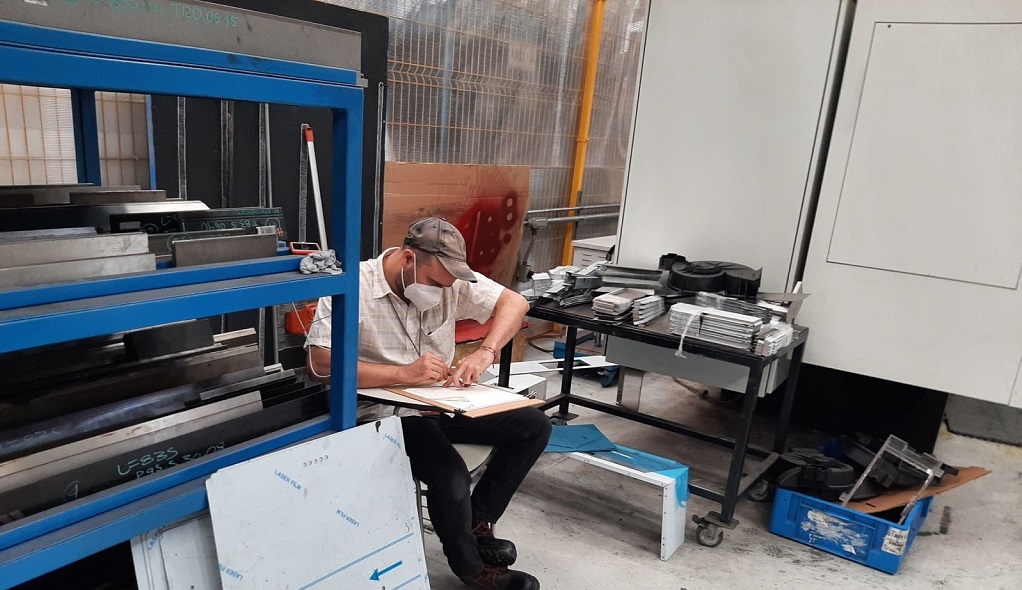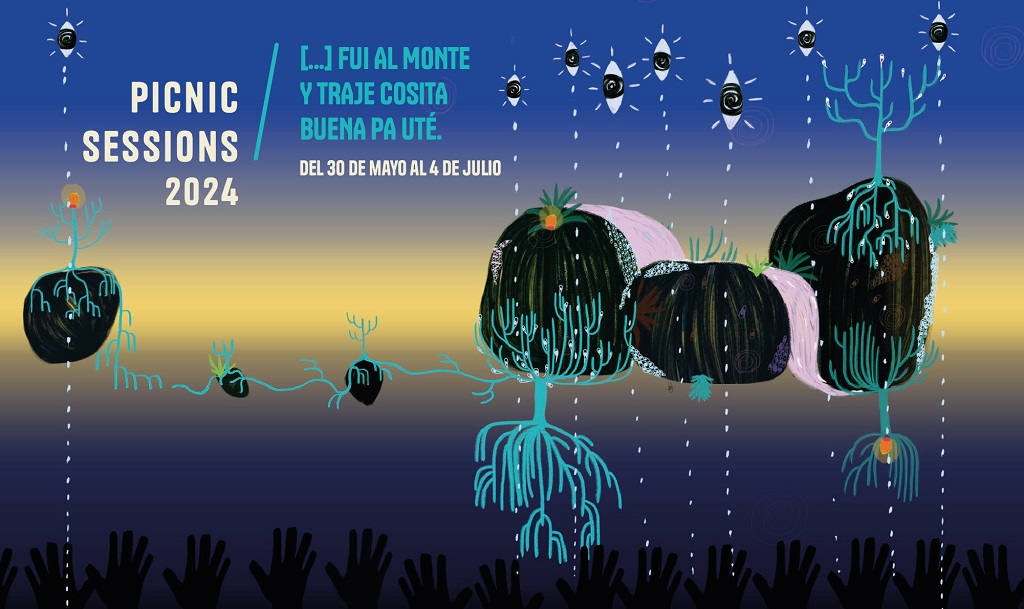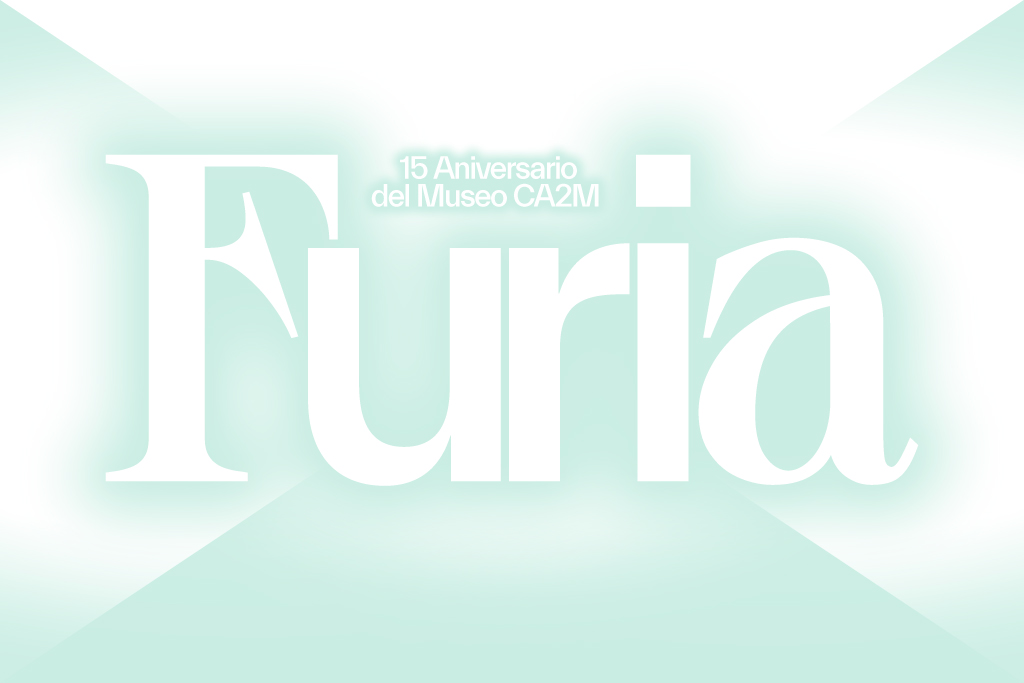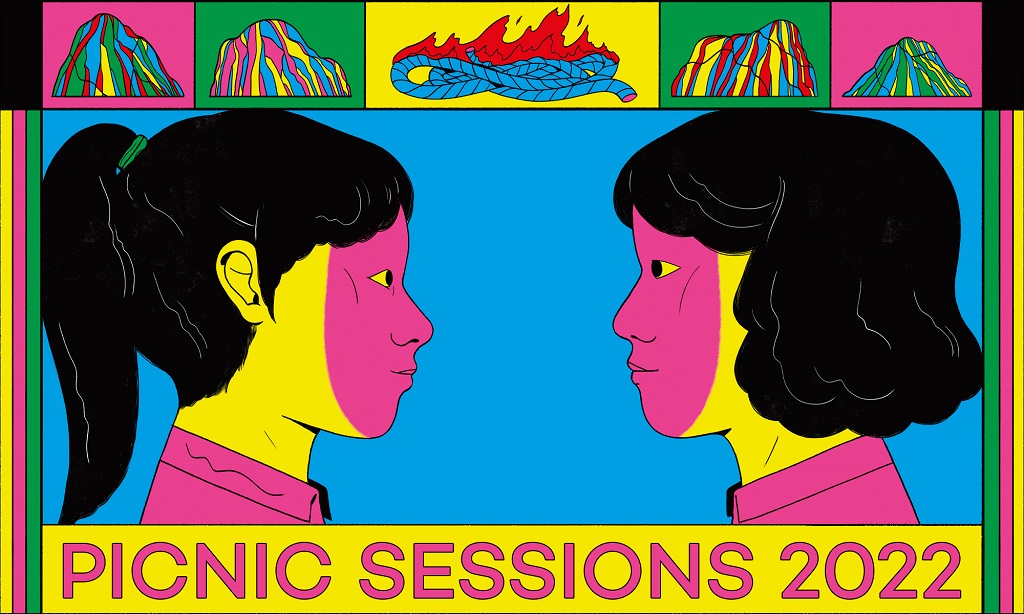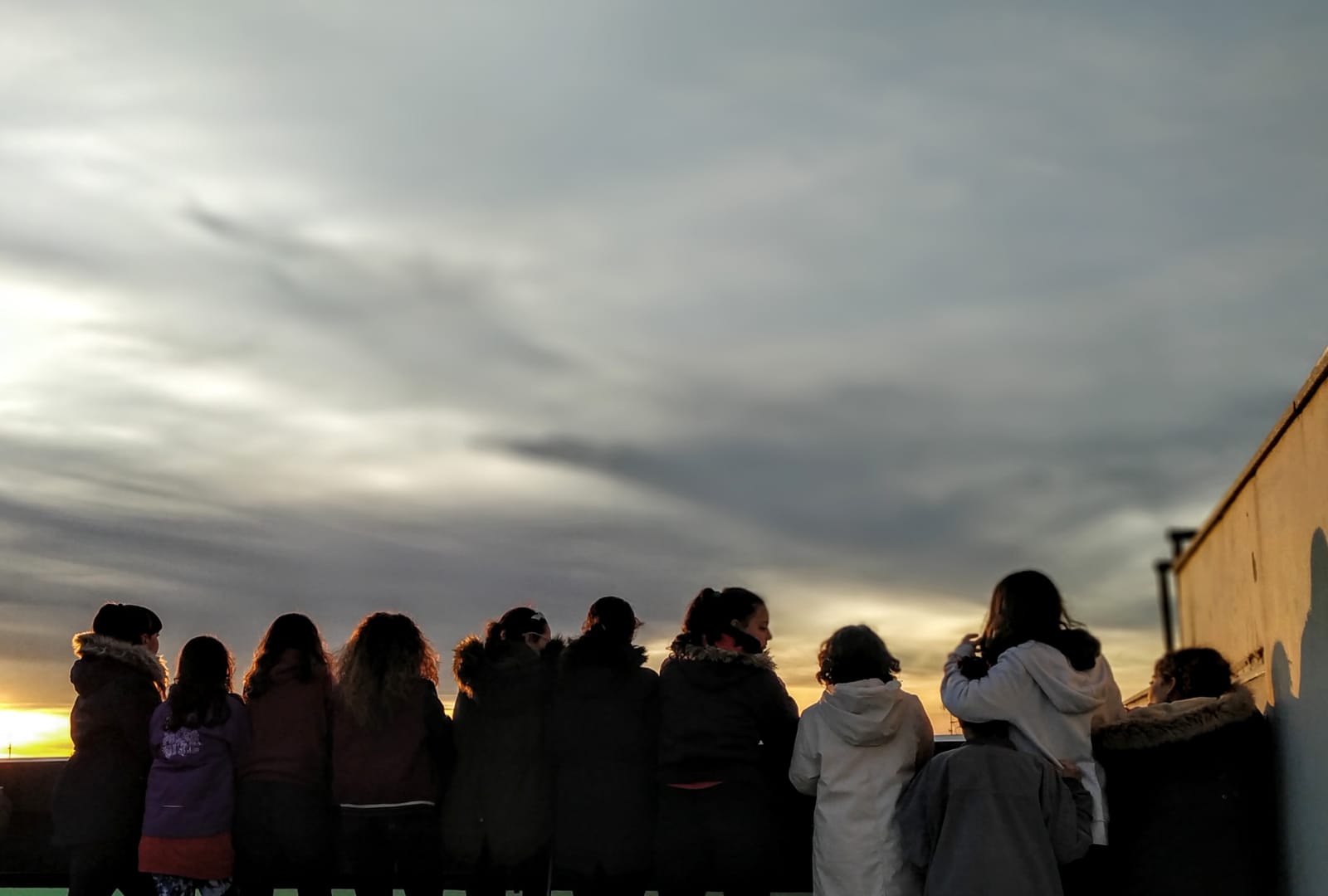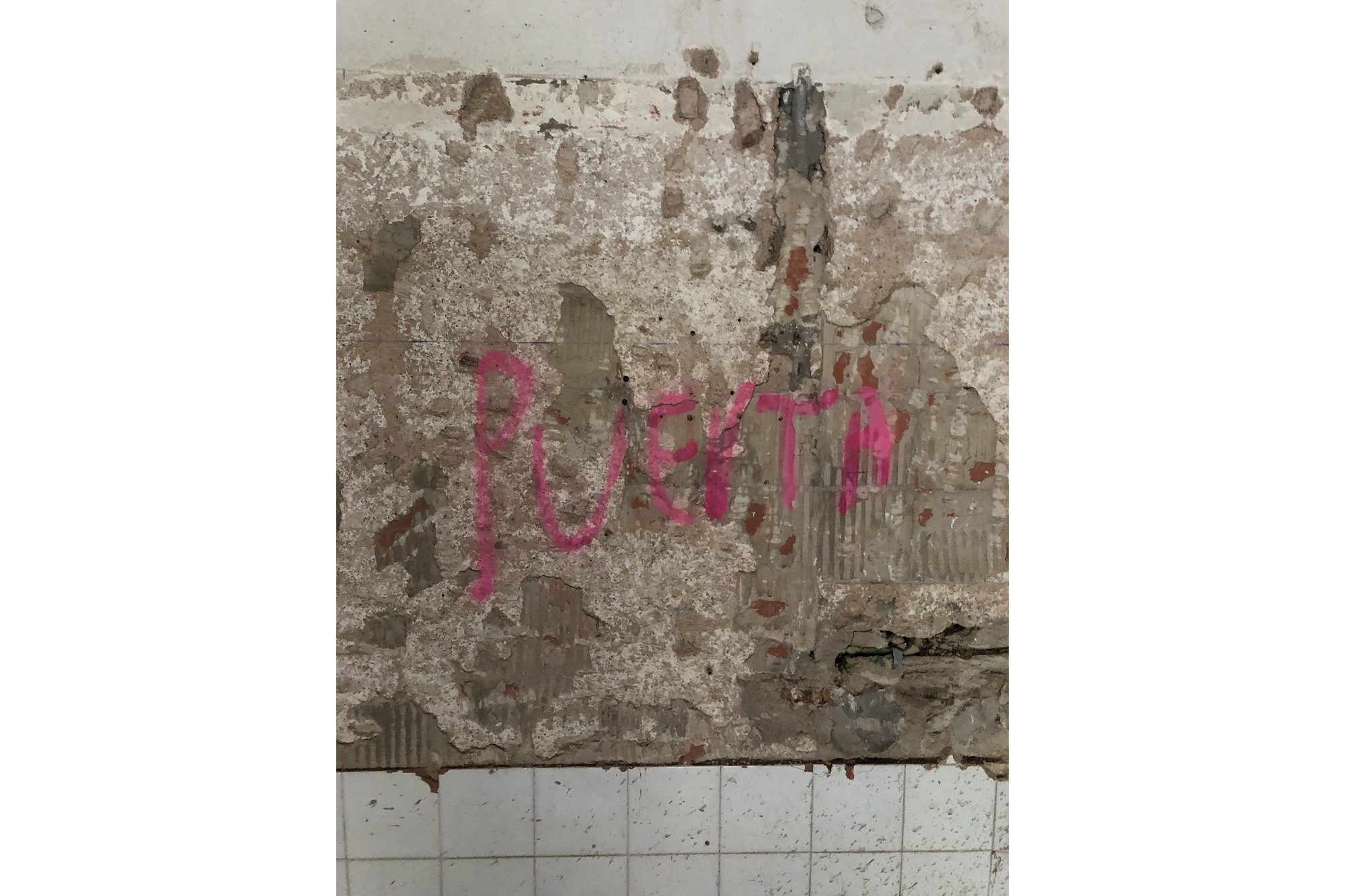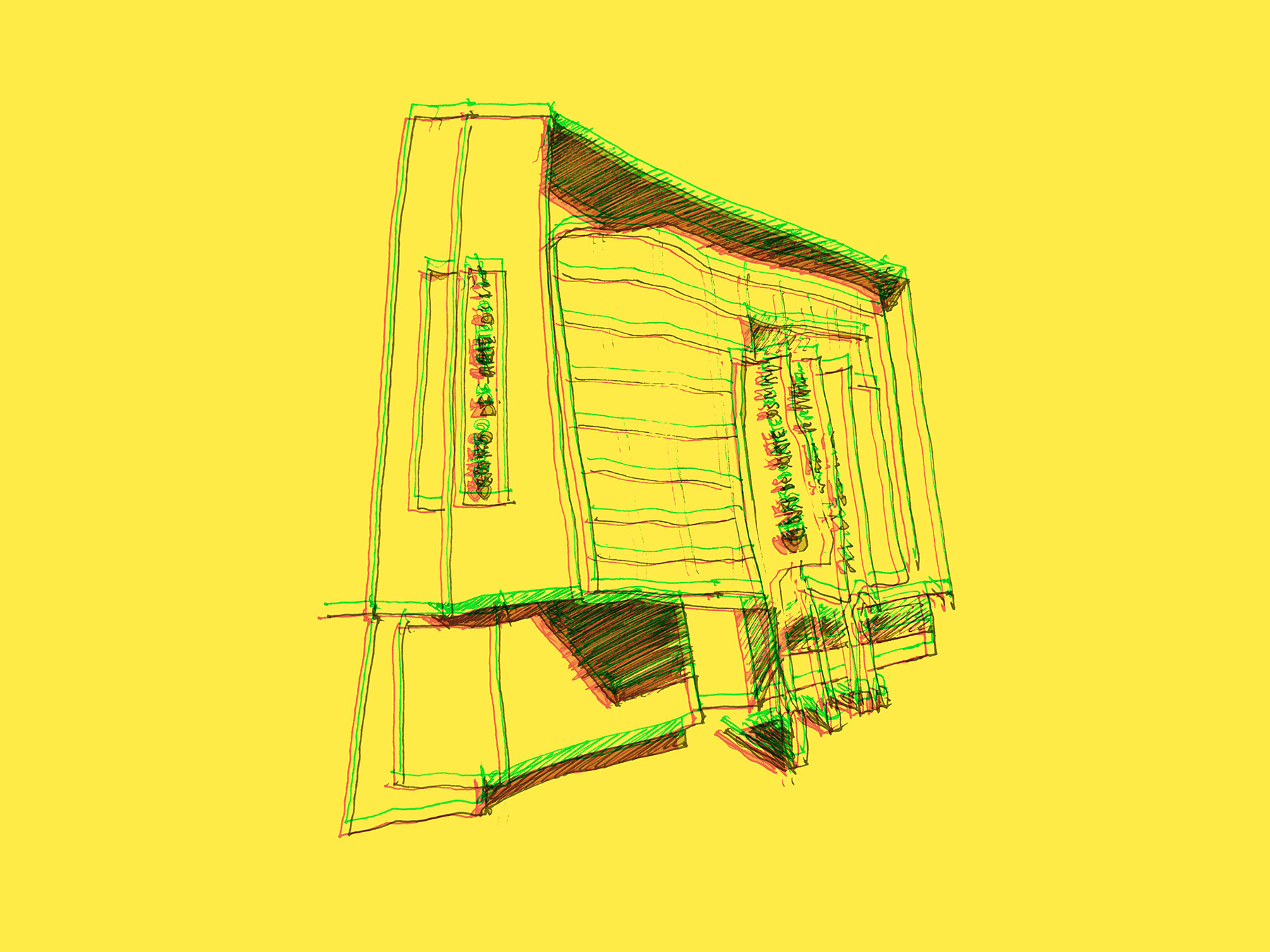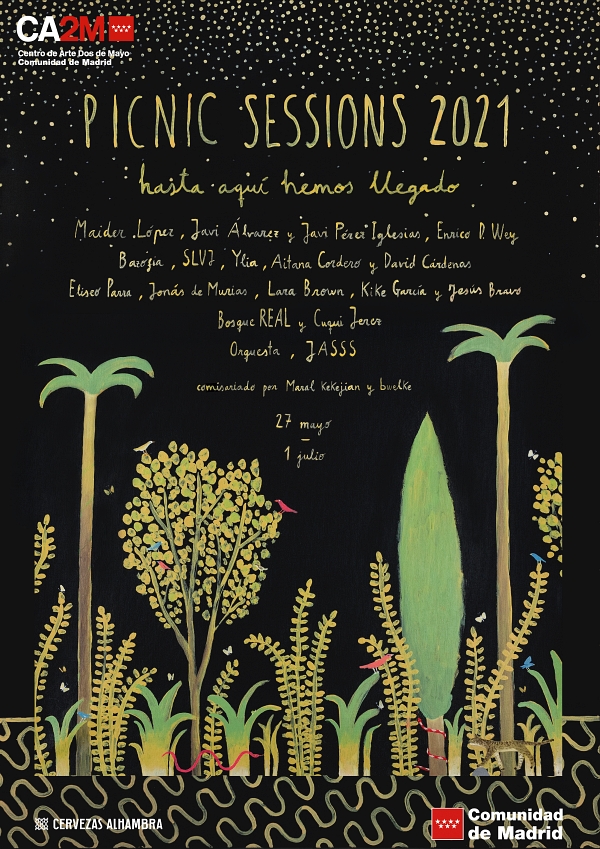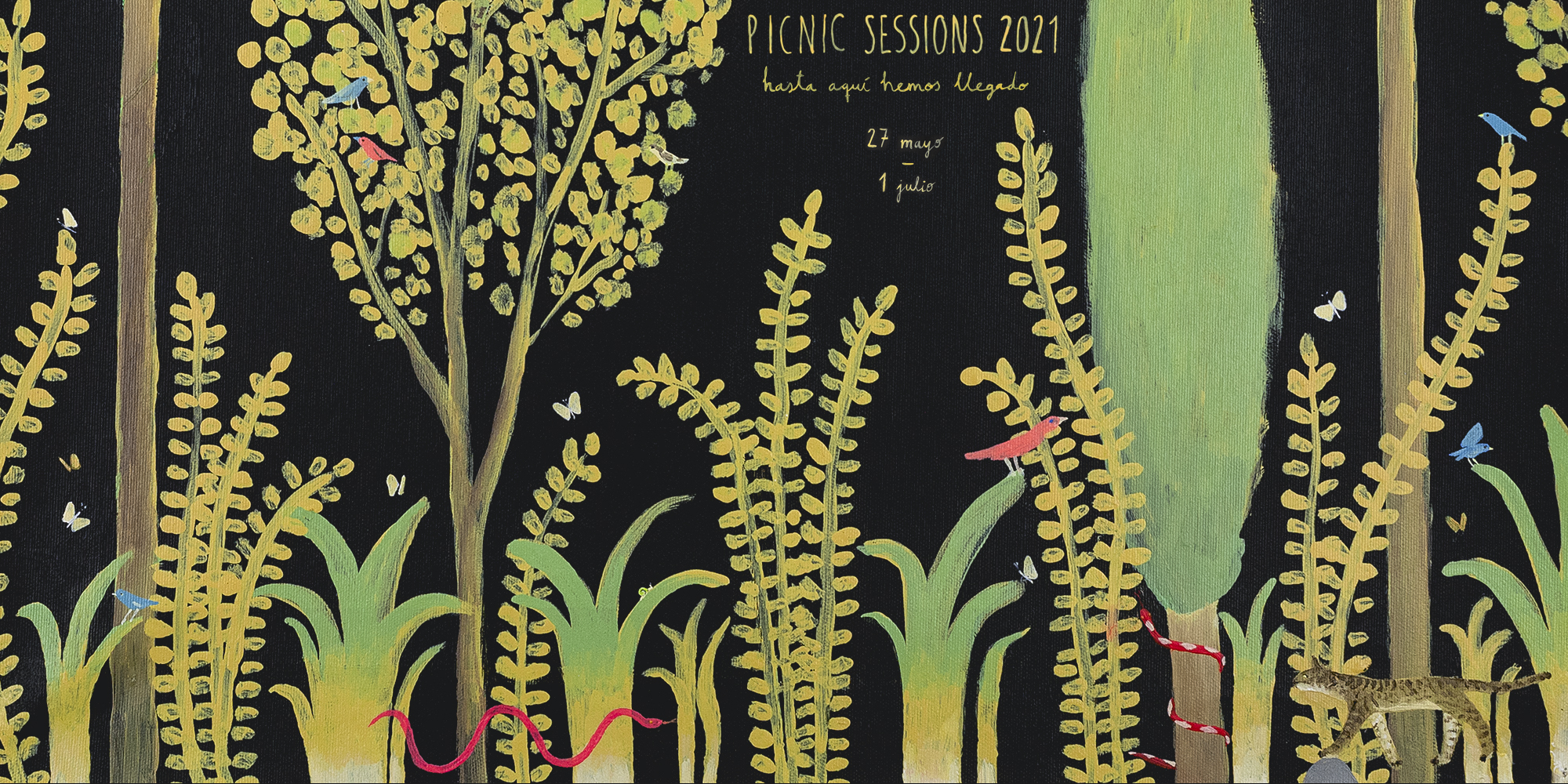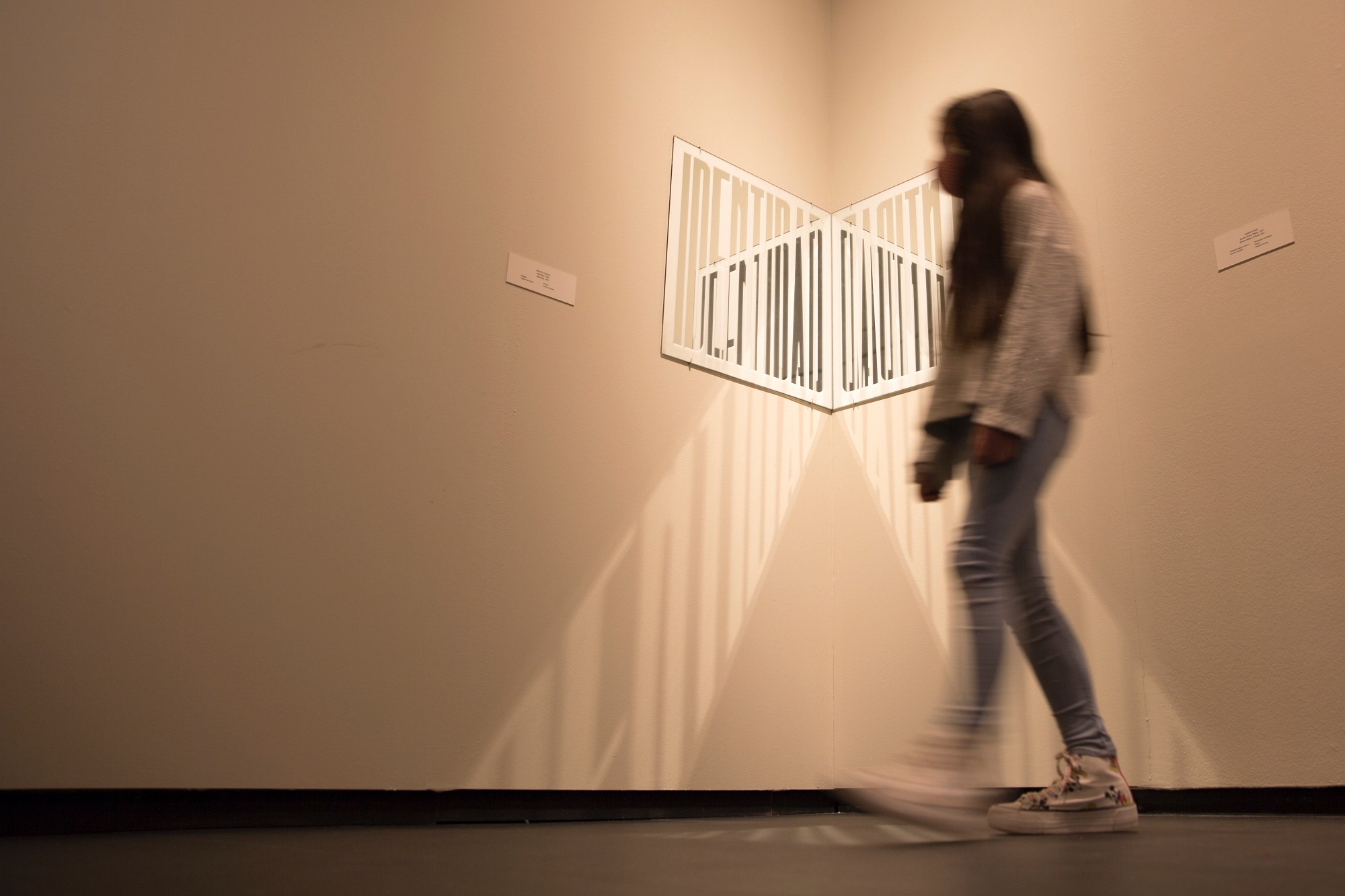Interdependence is at the very groundbase of our most everyday reality. Marina Garcés contends that “you cannot say I without an echo of us”, but it is a singular us—not ‘all of us’ but rather ‘each one of us’. We are increasingly bombarded by the fantasy that it is possible to live in isolation, but, not only that, that this life in isolation is livable. Political discourses, economic dynamics, ways of life, routines, slogans and individualist aspirations hold sway. And even though the lesson that we need each other can be gleaned from the extreme circumstances we have lived through and from everyday reality, the dominant narratives are different.
Coexistence has been smothered by survival.
Interdependence, and its manifold expressions, is the common thread running through these picnic sessions: ranging from our relationship with nature to work relations. The role of the public is crucial to reach the level of euphoria needed to generate the sensation of community, the sense of belonging that I, you and we all look for in a family, a rave or a union.
Interdependence comes about from the undeniable vulnerability that we all share in common. To bring this reality to light, the hierarchical relationship between audience and artists will disappear in the sessions when creators openly reveal their precariousness, endemic to the cultural industry, exposing the hidden underbelly of their life stories, a kind of in bio veritas that speaks of hand-to-mouth jobs and the difficulty if not directly the impossibility of making a living from art. In addition, the bureaucratic, administrative and fiscal demands required to take part in certain cultural spaces are major obstacles for creative practice. To circumvent and shatter them, mutual support is, as always, the most effective instrument at hand.
More than just participating, the audience becomes one with the music and performances, it is invited to reach out and touch each other blindly, to make exchanges on the sidelines of the economy or to take stock of their privilege with regards those who society categorizes as dependents, as if the rest of us were not.
These Picnic Sessions are an invitation to make the most of these bonds, and to create new ones. With euphoria.
Curated by: Nerea Pérez de las Heras and Mar Rojo.
// At the beginning of the nineteenth century, the Picnic Society was founded in London and met regularly in the open air. On its outings, which had no specific host as such, the individual members were expected to provide the refreshments and the entertainment. Starting out from the same concept, and forming its own particular Picnic Society, every year CA2M Centro de Arte Dos de Mayo invites various curators to design a programme for the art centre’s roof terrace.
Every Thursday from the end of May until mid-July the CA2M roof terrace will be transformed into a space where we will carry out a programme of activities mixing the body and sound with education and participation. //
PROGRAMME
• Thurs 26/05 I IF YOU MOVE, I MOVE Miss Beige, Dembooty
• Thurs 02/06 I OUTSIDE THE NORM Costa Badía, LVL1
• Thurs 09/06 I INTERDEPENDENTS Ana Matey, Maricas: Jovendelaperla & Berenice
• Thurs 16/06 I A SINGLE BODY Ernesto Artillo, Ece Canli
• Thurs 23/06 I NEW PIECES, NEW GAMES Andrea Jiménez, Caliza
• Thurs 30/06 I MELT, MIX, STIR Victória Bemfica, Emily da Silva, Gabriela Clavería and Ikram Bouloum
SCHEDULE: 9:00 p.m. to 11:00 p.m. (EXCEPT THE SESSION ON THE 30TH, WHICH WILL BEGIN AT 6:00 p.m.).
YOU CAN DOWNLOAD THE PROGRAM HERE
Entrance
At the beginning of the 19th century, The Picnic Society was born in London, an association that met regularly in the open air and in whose meetings each member was expected to contribute part of the entertainment and refreshments without there being a specific host. Based on this concept, and as a Picnic Society, the Museo Centro de Arte Dos de Mayo invites several curators each year to design a program for the Museum's terrace. Every Thursday from the end of May to the end of June, our terrace becomes a space in which we develop a program of activities in which the body and sound are mixed with the educational and participatory.
PICNIC SESSIONS 2022. VITAL SUPPORT
